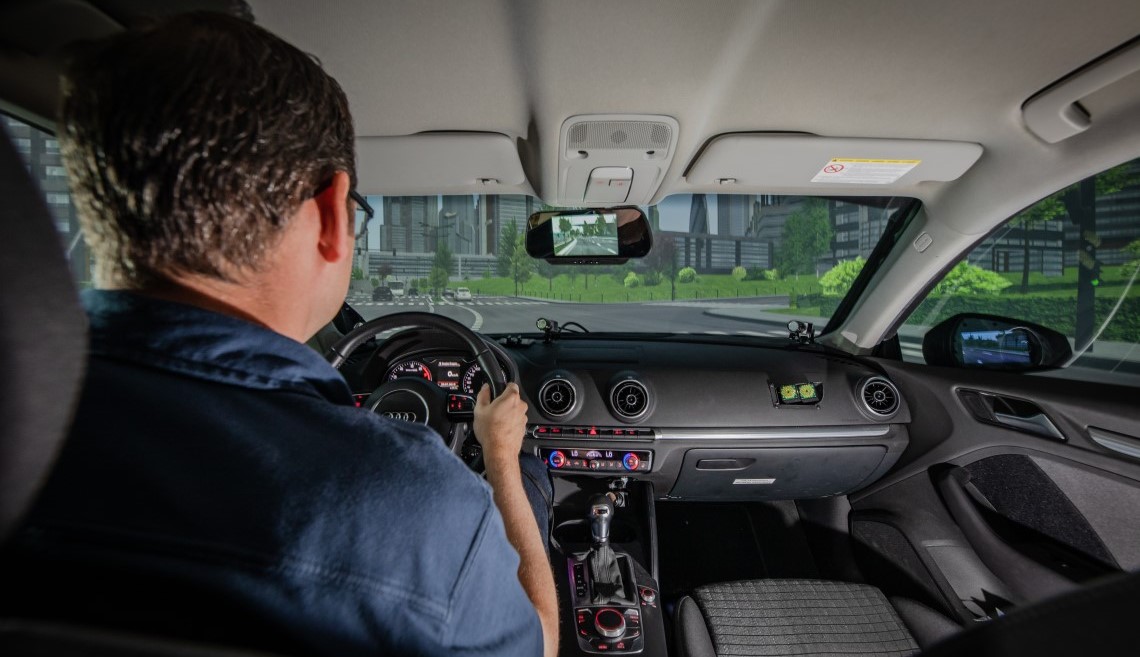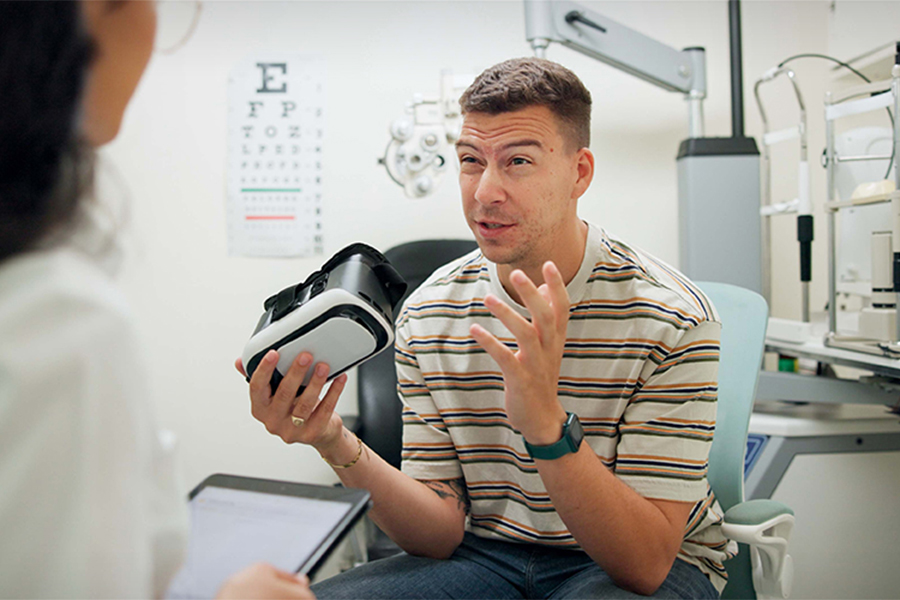
Listening while completing complex tasks — such as driving and talking with a passenger — can become more difficult with age due to gradual changes in hearing and cognition.
Researchers from the KITE Research Institute (KITE) at UHN found that older adults experience more difficulty multitasking while driving than younger adults and identified strategies to help improve driving safety.
The study led by Katherine Bak, first author and PhD student in the lab of Dr. Jennifer Campos, analyzed the driving performance of 48 licensed drivers — including younger adults with an average age of 26 and older adults with an average age of 68.
Using an advanced driving simulator located at the KITE DriverLab, participants navigated both simple rural roads and complex city environments while listening to phrases spoken with varying levels of background noise. Listening accuracy was measured by how well participants could repeat the phrases, while driving performance was assessed by tracking how well they maintained their lane position.
The results showed that older adults had poorer listening accuracy than younger adults, particularly when driving in city environments and under noisier conditions. Both age groups showed some decline in driving performance when listening and driving. However, older adults had more variability in their lane positioning.
The findings of this study, whose senior author is Dr. Campos, a Senior Scientist at KITE, Associate Director of Academics at the Toronto Rehabilitation Institute and a professor at the Rehabilitation Sciences Institute and the Department of Psychology at the University of Toronto, suggest that as people age, multitasking on the road becomes more mentally demanding.
Everyday distractions — such as conversations, navigation systems and background noise — may increase mental load and pose safety risks for older drivers.
Future work should explore how improving in-vehicle acoustics, reducing auditory distractions, or providing cognitive training could help reduce multitasking strain — supporting older adults in staying mobile, independent and safe behind the wheel.
This study was supported by generous donors to UHN Foundation.

No one ever changed the world on their own but when the bright minds at UHN work together with donors we can redefine the world of health care together.


